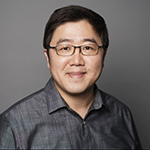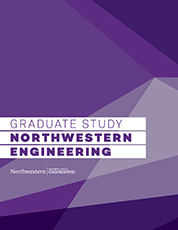Designing a Journey
From EDI to the prestigious Delft University of Technology in the Netherlands, Euiyoung Kim (EDI ‘11) applies a human-centered approach to mobility.
More than 61 million travelers fly in and out of Schiphol Airport in Amsterdam each year. Some are not there of their own free will.
A group of students in Reimagining Mobility, a course taught by Euiyoung Kim (EDI ‘11) at Delft University of Technology in the Netherlands (TU Delft), devised a way to spotlight the issue for those waiting to board their flights.
 The students created a virtual reality/augmented reality game for travelers where they are challenged to create and serve specialty coffee drinks to others in the airport. During the game, there are signs of human trafficking. The challenge is for users to identify those signs.
The students created a virtual reality/augmented reality game for travelers where they are challenged to create and serve specialty coffee drinks to others in the airport. During the game, there are signs of human trafficking. The challenge is for users to identify those signs.
This type of innovation surrounding the way we move in and around the world and the real-life challenges associated with it is a centerpiece of Kim’s efforts to change how students think about design. To promote these concepts, Kim leans on the lessons he learned in Northwestern's Master of Science in Engineering Design Innovation (EDI) program.
“My role is to develop innovation frameworks to cope with the ever-changing external environment through the lens of designers,” he said. “I guide students in envisioning meaningful mobility solutions that harmonize people with various transportation modalities, thereby reimagining the future of mobility.”
Kim's focus is on human-centered design (HCD) and understanding user pain points in order to create useful products.
“I still vividly remember the three human-centered design courses offered in the EDI program when I joined it 15 years ago,” said Kim, who has been an assistant professor at TU Delft for nearly six years. “They opened my eyes to the HCD subject, forming the foundation of the research and education I have been engaged in ever since.”
The EDI program’s approach to HCD grabbed Kim’s attention. He was also attracted to the program because of the industry prowess of the faculty and the curriculum’s focus on design thinking to address real-world challenges.
Kim said he left the EDI program as a different person. He had a new and firm foundation that shaped how he thought of design, as well as experience tackling real industry challenges with empathy and user-centeredness.
This approach has guided his work as an educator.
“I have always aspired to be an academic, where fundamental knowledge is conceived, tested, and implemented in close connection with practice to ensure the work makes a real impact,” he said. “Bridging these two realms and bringing new knowledge back into design engineering education — helping students prepare to tackle real-world problems — has always been a source of excitement for me.”
TU Delft is considered one of the world’s leading technical universities. In 2024’s QS World University Rankings, it ranked third worldwide for architecture, 11th for art and design, and 13th for engineering and technology.
That puts Kim in a position to educate some of the best and brightest designers in the world.
In addition to his Reimagining Mobility course, Kim has contributed to the teaching leadership of Graduation Launchpad, Designing Airport Ecosystems, and Strategic Product Design Research in the Design, Organization, and Strategy department. He also is co-director in the Automated Mobility lab at the Faculty of Industrial Design Engineering at TU Delft.
“I genuinely believe that I wouldn’t have reached where I am today without the training I received in the EDI program,” Kim said. “The courses served as a cornerstone upon which I have firmly grounded my career. Even now, I maintain a strong personal attachment to the EDI program, which continues to feel like a second home to me.”

